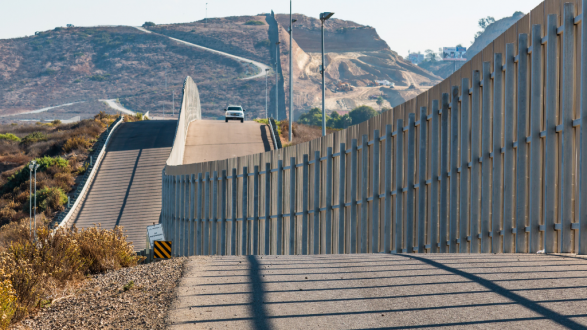Zoom Video Conference (login details provided day before or day of event)
A debate on open borders in the United States, part of the PolicyWest conference.
Register for PolicyWest here.
Featuring:
Fabio Rojas, Professor of Sociology, Indiana University Bloomington
Fabio Rojas is the Virginia L. Roberts Professor of Sociology at Indiana University, Bloomington. He is also the co-editor of Contexts: Sociology for the Public, the official magazine of the American Sociological Association. Read more.
Seth Stodder, Partner, Holland & Knight LLP
Seth Stodder represents clients on a wide variety of matters involving international trade and cross-border transactions, proceedings before the Committee on Foreign Investment in the United States (CFIUS), immigration and visas, cybersecurity and data privacy, civil and criminal government investigations, and national/homeland security. He is a partner in Holland & Knight's Los Angeles office. Read more.
Moderator:
Aaron Brooks, Project Manager, Raytheon Technologies
Aaron J. Brooks is an operations and logistics professional with global experience, coming from 21 years of Marine Corps service before receiving an Honorable Discharge as a field grade officer. Aaron's overseas deployments include: a UN multi-national coalition (Operation Southern Watch), detainee & intelligence operations (Joint Task Force Guantanamo), Security Cooperation with Gulf nations, the phased US withdrawal from Iraq, and the surge of Marine Expeditionary Brigade Afghanistan before returning to stateside assignments. Aaron's USMC career culminated with a rewarding tour as the Commanding Officer of Marine Aviation Training Support Squadron One. He continues to support USMC aviation through his current role at Raytheon Technologies. Read more.
Background:
A government's control over who can enter their country and when is a given. It is a fundamental exercise of their sovereignty. Though is that notion worth reexamining? In the European Union, 27 nations have opted into a system where its citizens can relocate freely between countries and travel without passport checks. Could a system of unlimited immigration, where people move as freely as capital does, work in the United States? The historical, cultural, and economic impact of immigration is well documented, particularly in the United States, the world’s largest immigrant nation. Yet, would a laissez-faire approach to immigration be a net positive for the United States or would it exacerbate unemployment, depress wages, and drive inequity? Join us as experts argue for and against the notion of open borders in the United States.




